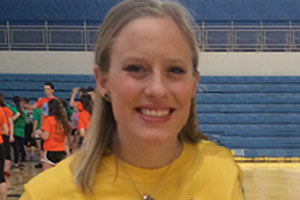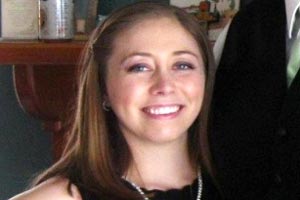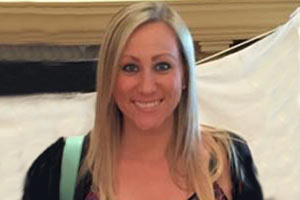Professional & Secondary Education
Graduate Programs
Contact UsProfessional & Secondary Education
Address:
Wayne Hall 502
125 W. Rosedale Ave
West Chester, PA 19383
Phone: 610-436-2958
Fax: 610-436-3102
DKaba@wcupa.edu
Graduate
Programs
We are proud to present a Masters of Education degree focused on Transformative Education and Social Change consisting of the development of empowered and impactful teaching methods, the creation of inspired and meaningful educational programs, and the examination of the transformative potential of education.
Our department faculty focuses on a more critical theoretical foundation from which our candidates can make an honest analysis of the issues and ideologies confronting contemporary education, identify contradictions and points of concern, and construct transformative programs and practices in response.
Candidates will reflect on their own experiences in order to identify and challenge the common assumptions underlying the dominant educational philosophies today. This unique approach seeks to close the gap between theory and practice and integrate the ideals of freedom and critical democratic engagement into education.
We offer a very meaningful, personal, and rewarding experience for educators who, in spite of these trying times, still hold to what drove them into teaching: to have a positive impact on their students and the world. Our program envisions the preparation and inspiration of empowered educators - transformative intellectuals - who create and share knowledge and strategies to improve the quality of life for their students, schools, and communities.
I welcome prospective candidates, on behalf of our Department faculty and staff, to communicate with us any concerns you have about the program and ways we might better accommodate your personal goals. We are excited to meet with you and answer any questions you might have.
With warmest regards,

John M. Elmore, Ph.D.
Professor and Department Chairperson
Mission, Goals, and Outcomes
Our Masters in Education program seeks to inspire the development of integrated, engaged, and active teachers who will embrace their role as democratic agents of change in the communities in which they teach. To this end, candidates will examine the historical, social, political, and economic foundations of education for social transformation; study the psychology of impactful teaching and learning; consider the role of technology on social change in the twenty-first century; develop capacities for the production of meaningful curricula and empowered pedagogies, and develop authentic assessment and evaluation methods for transformative education.
In order to understand the political contexts in which they teach, teachers need to have a critical theoretical foundation. A primary focus of the program is to provide students with a critical framework so that students can challenge their own biases and assumptions they have made regarding their underlying educational philosophies and practices.
Additionally, the program strives to give teachers the necessary tools to develop as change agents and challenge and test their assumptions, the program will be built around an action research emphasis. Action research is a process of reflection which allows teachers or other educators to improve the way they address issues and solve problems in their schools and classrooms. By grounding the program in the action research model, we seek to close the gap between theory and practice and to integrate the ideals of "teacher as researcher" and "data driven decision making" within the teaching profession.
Outcomes
The current master degree program in Secondary Education has the following outcomes:
- EDP 550: Advanced Educational Psychology
Students will be able to summarize and synthesize the extant research concerning selected aspects of student cognition; students will incorporate the research-based information into their culminating action research project. - EDF 510: Educational Foundations
The student will critically evaluate the social, political, and economic nature of education. - EDF 500: Methods and Materials of Research in Education
The student will review and evaluate research articles and conduct research studies, if appropriate.
Application Procedure
Applicants for the M.Ed. in Secondary Education* are expected to have:
- An undergraduate degree from an accredited college or university
- An undergraduate degree GPA of 3.0 on a 4.0 scale. (If an applicant possesses a master's degree, the GPA requirement applies to that degree)
In addition to meeting admission requirements of the University, the student must:
- Submit two letters of recommendations, all transcripts and a goals statement
- Be approved by the Department of Professional and Secondary Education for graduate work
Upon admission, students will be assigned advisors who will help them to outline the appropriate program. All work for the program must be approved by the advisor and the departmental graduate committee.
For additional information please contact Dr. Rob Haworth.
To apply for the graduate program, visit the Graduate Studies site and click on the APPLY NOW button.
* This program does not lead to teacher certification.
Advancing to Candidacy
During the pre-candidacy period, the student must:
- Attain full status, if admission status to the program was provisional.
- Complete the core courses.
- Achieve a minimum overall grade point average (GPA) of 3.0 and a minimum GPA of 3.0 in the required courses in the area of concentration.
- Show evidence of academic, personal, and professional qualities that satisfy the advisor and the departmental graduate committee.

 ALEXANDRA C.
ALEXANDRA C.
 ROB V.
ROB V.
 SAMANTHA P.
SAMANTHA P.
 ERIN M.
ERIN M.
 MICHELLE F.
MICHELLE F.